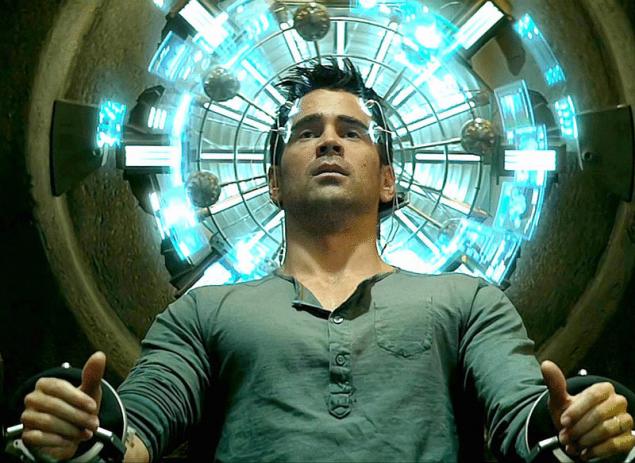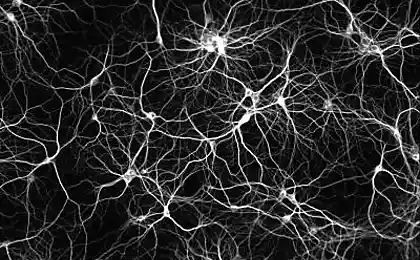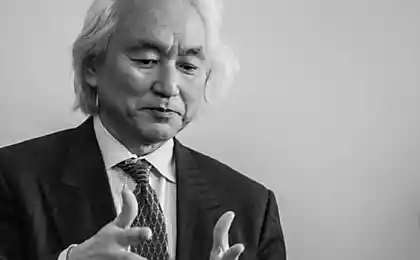440
The manipulation of consciousness: replanting of false memory
Sometimes watching TV, we wonder: does anyone believe in this nonsense? Alas, I believe.
Almost any fiction finds some part of the audience, uncritically perceiving all that she inspired.
But, it turns out, the situation is even worse: it turns out, human memory is arranged so that it can be made even distorted information about that person knows himself, personally, and he will be unable to distinguish the fictional from the actual incident.

©Total recall, 2012
The first experiments on implantation of false memory has been in the 90-ies of the last century, Elizabeth Loftus. She gave 24 participants of the experiment, a brief (one paragraph) description of the four stories that happened to them at ages 4 to 6 years — and three stories was true (they said the relatives of participants), and the fourth on how the participant was a child lost in the supermarket, was completely fictional. The participants said that they participate in experiment on studying of possibility of detailed reconstruction of childhood memories, and asked to first write, and a week later to talk about at interview, details issued to them four stories as they remember them.
Of the 24 participants, six not only "remembered" how they got lost in the supermarket, but was told this episode in colorful detail, while noting that memories of it are a bit more vague than the other three episodes. However, an observer could not, by their speech, to determine which of the four events is false. Subsequent experiments showed that depending on initial conditions, in particular the implantation of false memory in Loftus conducted a similar experiment is achieved in 20-40 % of the participants.
The greatest success was achieved Kimberly Wade in 2002. In the experiment she used a description of the history and fabricated the photo of the balloon ride, which allegedly previously made during the experiment. As a result, about 50% of the participants formed a complete or partial memories of this flight that never was.
The most famous was the case of Paul Ingram accused by his own children that he regularly raped them when they were 4 to 12 years. Was charged years after the alleged events, therefore, no physical evidence was not. Ingram denied everything, but after five months of interrogation under pressure from the police suddenly literally confessed all sins, including not only rape their own children, but also participation in satanic rituals, including the killing of 25 children. However, psychologist Richard Ofshe interested in this opportunity, decided to the original experiment: he prepared a deliberately fictitious story alleging that the children Ingram also claimed that he forced them to have sex with each other. Polaco Ingram denied these events, but after a few hours began to gradually "remember" described by Ofshe events, and eventually wrote a three-page written confession. When Ingram later said that these events were completely fictional, he refused to believe it. This case shows well that can be implanted virtually any false memories, including sharply negative. And, of course, we are talking not only about false memoirs of Ingram, but probably on about the memories of his children (this is indicated by the fact that they remembered about allegedly committed by their father to violence in adulthood, and that during the trial they remembered new details).
Another interesting experiment is the topic of the accuracy of memories of real events, put Ulrich Neisser. In 1986, the day after the disaster of the "Challenger", he interviewed a number of people where they were and what they were doing at the time, when I heard about the disaster — it is believed that memory is clearly imprinted the circumstances in which a person experiences severe emotional distress. After some time, Nasser repeated the same survey with the same people — and almost none of them are the later version did not coincide with the earlier, more when they showed the recording of the first version of their responses, people just don't believe it. It's funny that the same case happened with the very Nasceram: as he says, he clearly remembers that the Japanese attack on pearl Harbor has learned during the broadcast of the baseball game — despite the fact that it is absolutely clear that no broadcasts of baseball games in the day simply did not exist.
The progress of science is not standing still, and presently "researchers" have achieved even more. According to some reports, is already known structures of the brain responsible for the replacement of real memory, and the control of activity of these structures during the process you can check — affected “brainwashing” or not, the subject to believe in false memories or just pretending.
The ten strategies of psychological manipulation of the media
1. Distraction
The basic element of social control is the strategy of distraction. The goal is to divert public attention from important issues that political and economic elites, using the technology of "floods" or "flooding" continuous distraction and insignificant information.
Strategy distraction important not to give citizens the opportunity to get important knowledge in science, Economics, psychology, neurobiology and Cybernetics.
2. To create a problem — offer a solution
This method is also called "problem-reaction-solution". It creates a problem, a "situation" that has caused some reaction from the public — to the people themselves began to desire her decision. For example, to prevent the growth of violence in cities or to organize bloody terrorist attacks to citizens demanded the adoption of laws on strengthening of security measures and policies that restrict civil liberties.
3. The strategy of gradualism
To implement unpopular decisions, you just need to apply them gradually, drop by drop, for years. So were imposed fundamentally new socio-economic conditions (neoliberalism) in the 80-ies and 90-ies: limiting the role of the state, privatization, precariousness, flexibility, mass unemployment, wages that already do not provide a decent life. That is, all those changes with simultaneous implementation would cause a revolution.
4. The strategy of postponement
Another way to take unpopular decisions, to present them as "painful and necessary" and to achieve at the moment the consent of citizens for its implementation in the future.
5. Baby talk with people
Most advertisements aimed at a broad audience, uses language, arguments, characters, and especially intonation, designed for children. If the viewer is a young child or has mental retardation. Why? "If you appeal to the recipient if he is 12 years old or less, according to the laws of perception is likely that it will respond or react uncritically — as a child."
6. More emotion than thought
The use of emotional aspect — is a classical technology for blocking the rational analysis and critical perception of individuals. In addition, the use of emotional factor allows you to open the door to the subconscious to bring back thoughts, desires, fears, concerns, coercion or desired behaviors.
7. To keep people in ignorance and mediocrity
The creation of a dependent society, incapable of understanding the technologies and methods of social control and oppression. "The quality of education provided by the lower social classes must be eposredstvenno poorer and that the gap of ignorance between the lower and higher social classes remained and it was impossible to overcome."
8. To encourage the masses to get excited about mediocrity.
To introduce to the masses the idea that it is fashionable to be stupid, vulgar and rude.
9. Promote a sense of guilt
To make individuals believed that they are to blame for their misfortunes and failures due to lack of intelligence, abilities, or efforts. Thus, instead of rebelling against the existing system, individuals feel helpless, engaged in self-blame. This leads to depressive state, effectively helps to curb the actions of man.
10. Know about people more than they are currently
Over the past 50 years scientific advances have led to rapid growth of the knowledge gap between the bulk of the society and those who belong to the ruling elite or used by them. Thanks to biology, neurobiology and applied psychology, the "system" has enjoyed an advanced knowledge of the human being, physically or psychologically. This means that in most cases, the "system" has more control and more power over individuals, than individuals over themselves. published
P. S. And remember, just changing your mind — together we change the world! ©
Source: gifakt.ru/archives/index/manipulyaciya-podsadka-lozhnoj-pamyati/
Almost any fiction finds some part of the audience, uncritically perceiving all that she inspired.
But, it turns out, the situation is even worse: it turns out, human memory is arranged so that it can be made even distorted information about that person knows himself, personally, and he will be unable to distinguish the fictional from the actual incident.

©Total recall, 2012
The first experiments on implantation of false memory has been in the 90-ies of the last century, Elizabeth Loftus. She gave 24 participants of the experiment, a brief (one paragraph) description of the four stories that happened to them at ages 4 to 6 years — and three stories was true (they said the relatives of participants), and the fourth on how the participant was a child lost in the supermarket, was completely fictional. The participants said that they participate in experiment on studying of possibility of detailed reconstruction of childhood memories, and asked to first write, and a week later to talk about at interview, details issued to them four stories as they remember them.
Of the 24 participants, six not only "remembered" how they got lost in the supermarket, but was told this episode in colorful detail, while noting that memories of it are a bit more vague than the other three episodes. However, an observer could not, by their speech, to determine which of the four events is false. Subsequent experiments showed that depending on initial conditions, in particular the implantation of false memory in Loftus conducted a similar experiment is achieved in 20-40 % of the participants.
The greatest success was achieved Kimberly Wade in 2002. In the experiment she used a description of the history and fabricated the photo of the balloon ride, which allegedly previously made during the experiment. As a result, about 50% of the participants formed a complete or partial memories of this flight that never was.
The most famous was the case of Paul Ingram accused by his own children that he regularly raped them when they were 4 to 12 years. Was charged years after the alleged events, therefore, no physical evidence was not. Ingram denied everything, but after five months of interrogation under pressure from the police suddenly literally confessed all sins, including not only rape their own children, but also participation in satanic rituals, including the killing of 25 children. However, psychologist Richard Ofshe interested in this opportunity, decided to the original experiment: he prepared a deliberately fictitious story alleging that the children Ingram also claimed that he forced them to have sex with each other. Polaco Ingram denied these events, but after a few hours began to gradually "remember" described by Ofshe events, and eventually wrote a three-page written confession. When Ingram later said that these events were completely fictional, he refused to believe it. This case shows well that can be implanted virtually any false memories, including sharply negative. And, of course, we are talking not only about false memoirs of Ingram, but probably on about the memories of his children (this is indicated by the fact that they remembered about allegedly committed by their father to violence in adulthood, and that during the trial they remembered new details).
Another interesting experiment is the topic of the accuracy of memories of real events, put Ulrich Neisser. In 1986, the day after the disaster of the "Challenger", he interviewed a number of people where they were and what they were doing at the time, when I heard about the disaster — it is believed that memory is clearly imprinted the circumstances in which a person experiences severe emotional distress. After some time, Nasser repeated the same survey with the same people — and almost none of them are the later version did not coincide with the earlier, more when they showed the recording of the first version of their responses, people just don't believe it. It's funny that the same case happened with the very Nasceram: as he says, he clearly remembers that the Japanese attack on pearl Harbor has learned during the broadcast of the baseball game — despite the fact that it is absolutely clear that no broadcasts of baseball games in the day simply did not exist.
The progress of science is not standing still, and presently "researchers" have achieved even more. According to some reports, is already known structures of the brain responsible for the replacement of real memory, and the control of activity of these structures during the process you can check — affected “brainwashing” or not, the subject to believe in false memories or just pretending.
The ten strategies of psychological manipulation of the media
1. Distraction
The basic element of social control is the strategy of distraction. The goal is to divert public attention from important issues that political and economic elites, using the technology of "floods" or "flooding" continuous distraction and insignificant information.
Strategy distraction important not to give citizens the opportunity to get important knowledge in science, Economics, psychology, neurobiology and Cybernetics.
2. To create a problem — offer a solution
This method is also called "problem-reaction-solution". It creates a problem, a "situation" that has caused some reaction from the public — to the people themselves began to desire her decision. For example, to prevent the growth of violence in cities or to organize bloody terrorist attacks to citizens demanded the adoption of laws on strengthening of security measures and policies that restrict civil liberties.
3. The strategy of gradualism
To implement unpopular decisions, you just need to apply them gradually, drop by drop, for years. So were imposed fundamentally new socio-economic conditions (neoliberalism) in the 80-ies and 90-ies: limiting the role of the state, privatization, precariousness, flexibility, mass unemployment, wages that already do not provide a decent life. That is, all those changes with simultaneous implementation would cause a revolution.
4. The strategy of postponement
Another way to take unpopular decisions, to present them as "painful and necessary" and to achieve at the moment the consent of citizens for its implementation in the future.
5. Baby talk with people
Most advertisements aimed at a broad audience, uses language, arguments, characters, and especially intonation, designed for children. If the viewer is a young child or has mental retardation. Why? "If you appeal to the recipient if he is 12 years old or less, according to the laws of perception is likely that it will respond or react uncritically — as a child."
6. More emotion than thought
The use of emotional aspect — is a classical technology for blocking the rational analysis and critical perception of individuals. In addition, the use of emotional factor allows you to open the door to the subconscious to bring back thoughts, desires, fears, concerns, coercion or desired behaviors.
7. To keep people in ignorance and mediocrity
The creation of a dependent society, incapable of understanding the technologies and methods of social control and oppression. "The quality of education provided by the lower social classes must be eposredstvenno poorer and that the gap of ignorance between the lower and higher social classes remained and it was impossible to overcome."
8. To encourage the masses to get excited about mediocrity.
To introduce to the masses the idea that it is fashionable to be stupid, vulgar and rude.
9. Promote a sense of guilt
To make individuals believed that they are to blame for their misfortunes and failures due to lack of intelligence, abilities, or efforts. Thus, instead of rebelling against the existing system, individuals feel helpless, engaged in self-blame. This leads to depressive state, effectively helps to curb the actions of man.
10. Know about people more than they are currently
Over the past 50 years scientific advances have led to rapid growth of the knowledge gap between the bulk of the society and those who belong to the ruling elite or used by them. Thanks to biology, neurobiology and applied psychology, the "system" has enjoyed an advanced knowledge of the human being, physically or psychologically. This means that in most cases, the "system" has more control and more power over individuals, than individuals over themselves. published
P. S. And remember, just changing your mind — together we change the world! ©
Source: gifakt.ru/archives/index/manipulyaciya-podsadka-lozhnoj-pamyati/
The unique method of Dr. Drapkina: I throw away your sickness
Why are the tomatoes, the empty shell?























